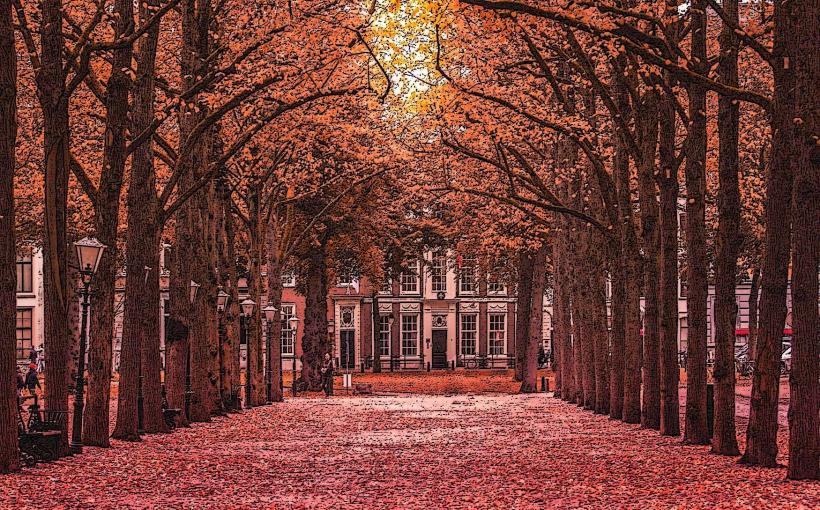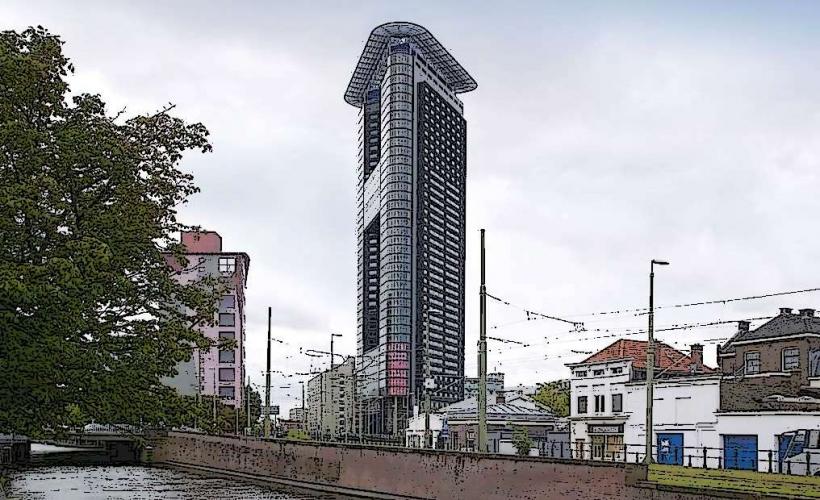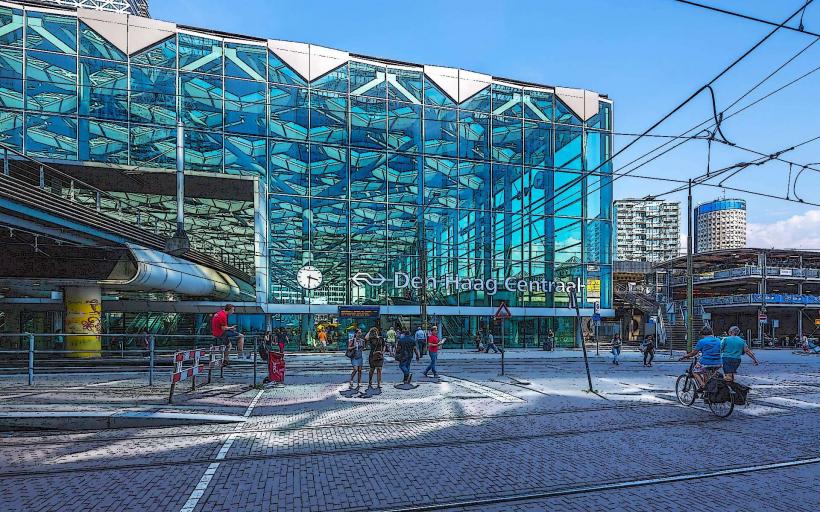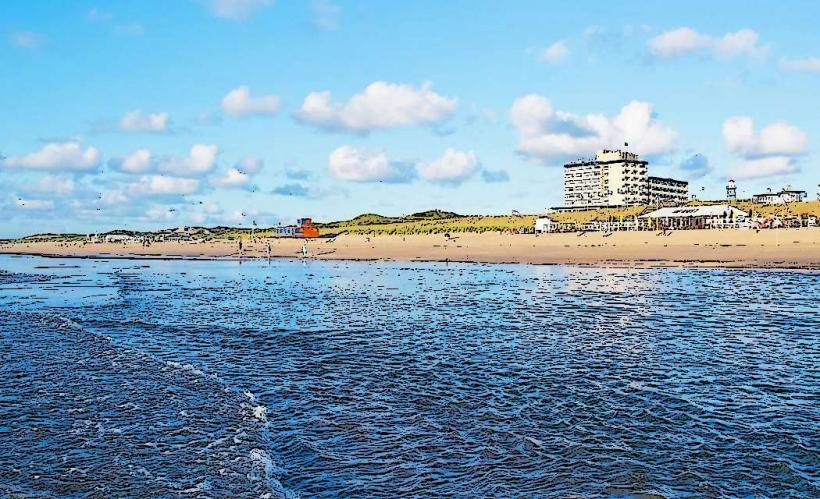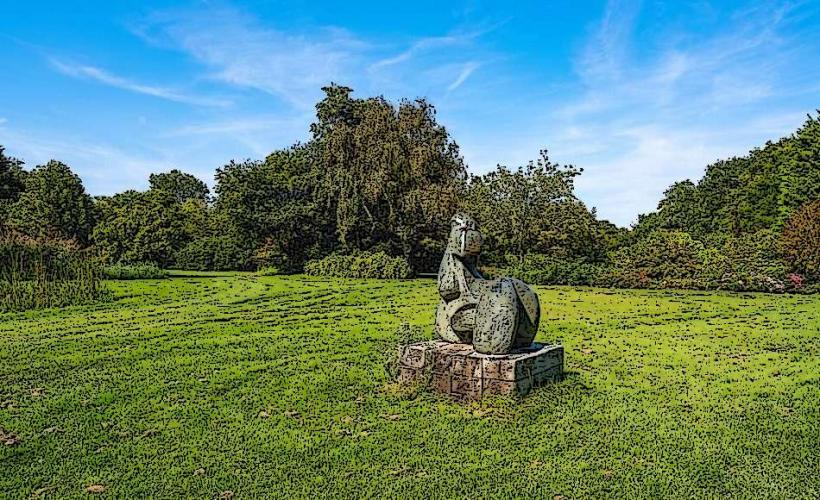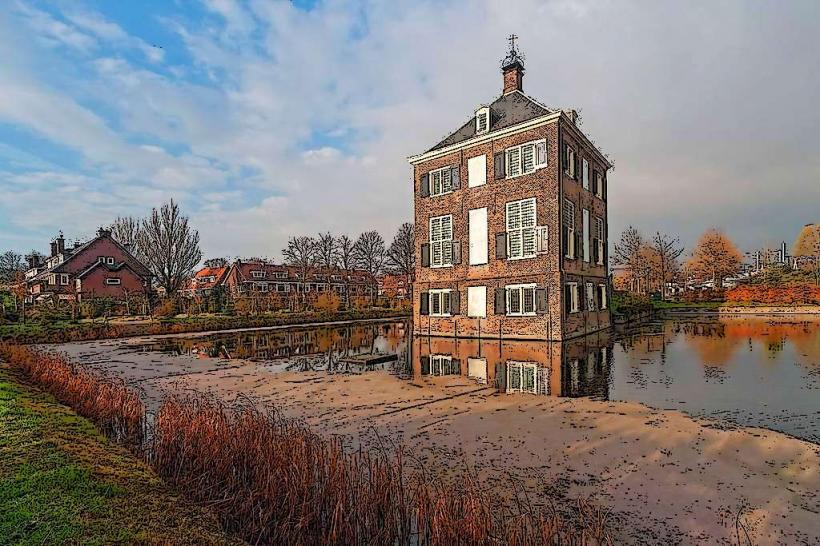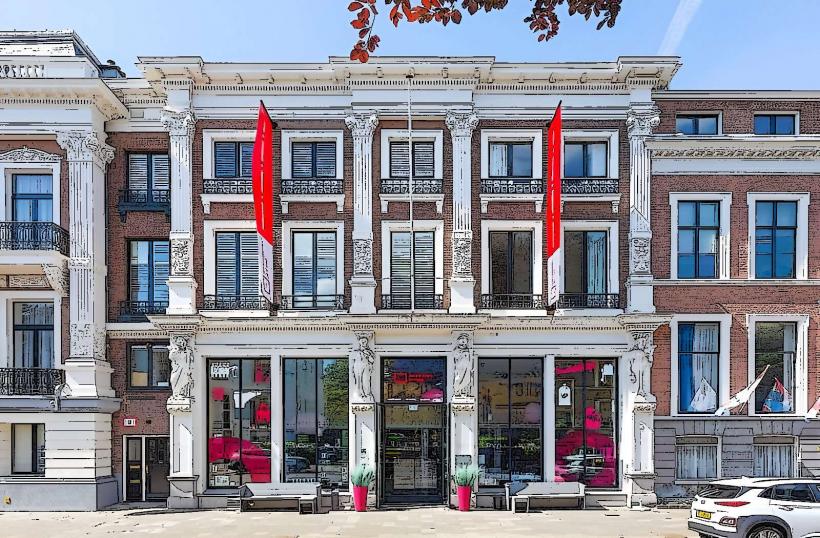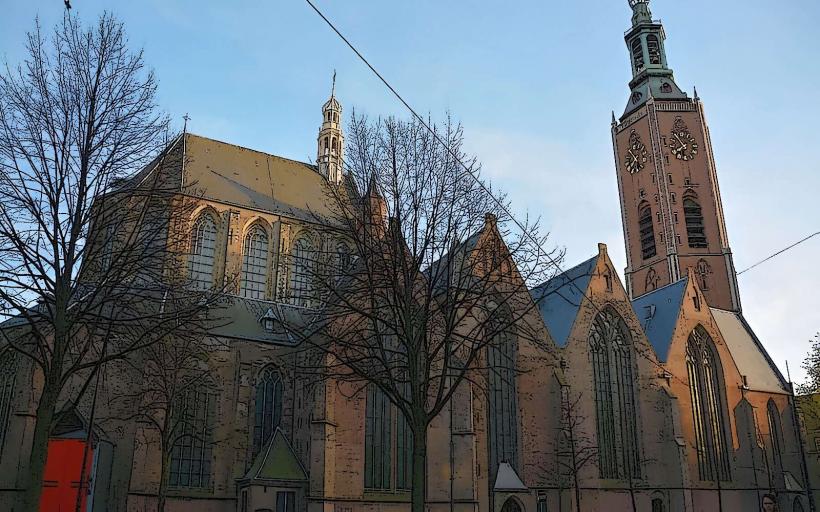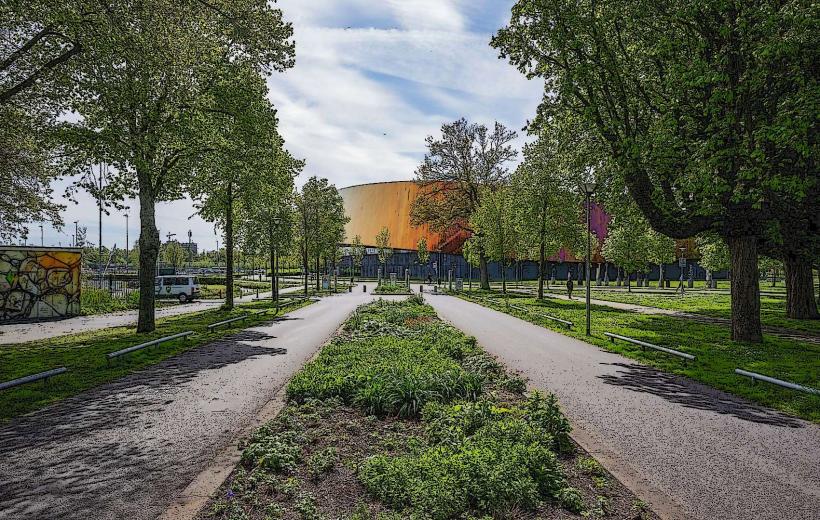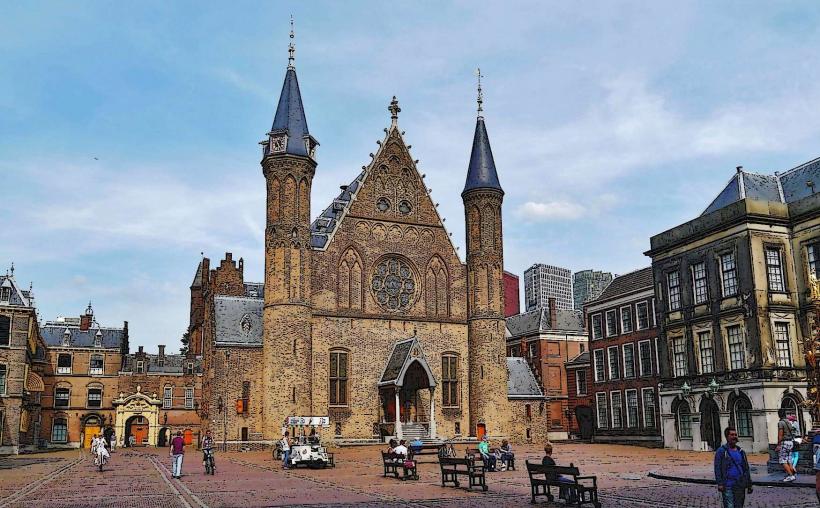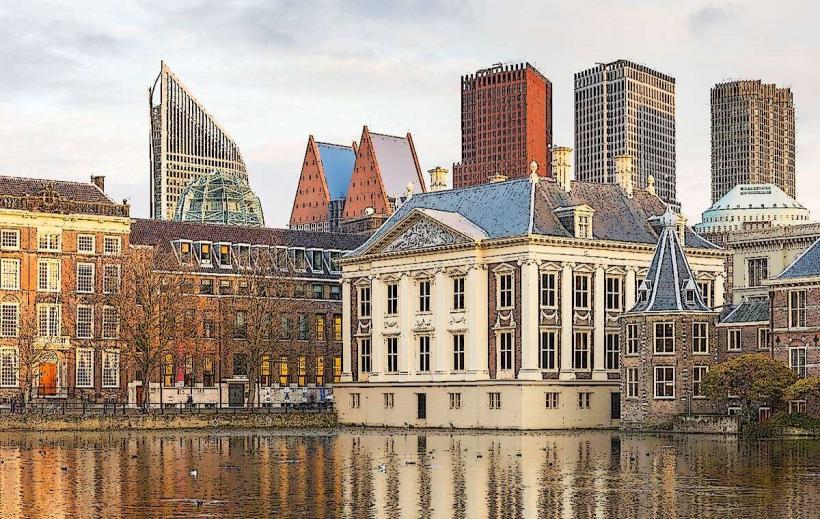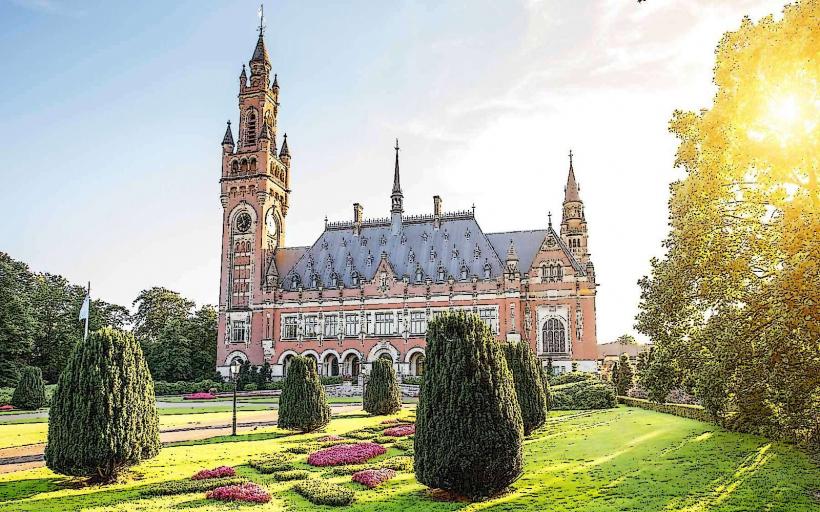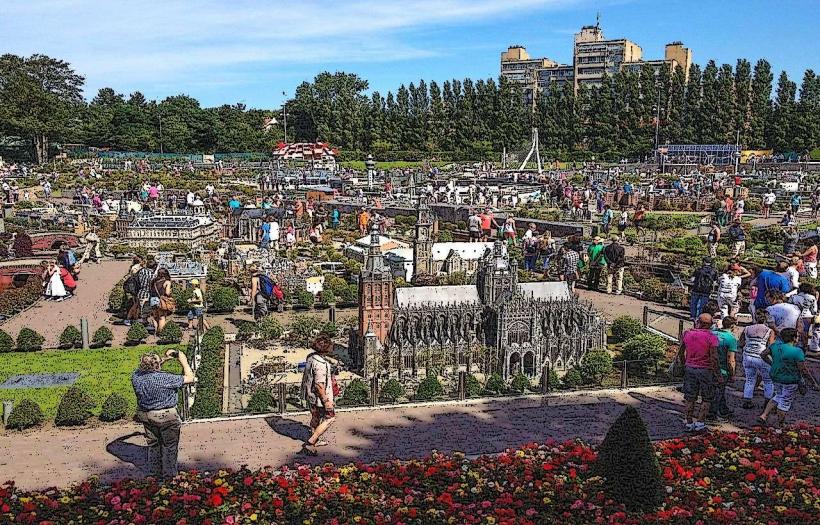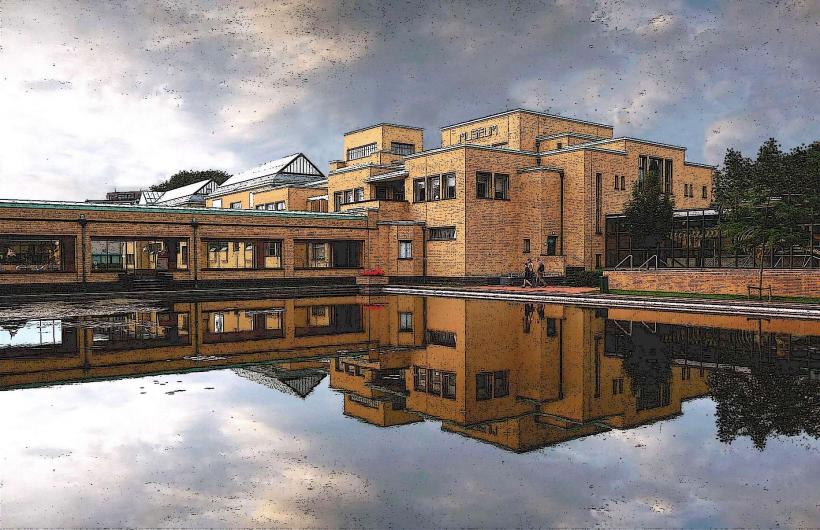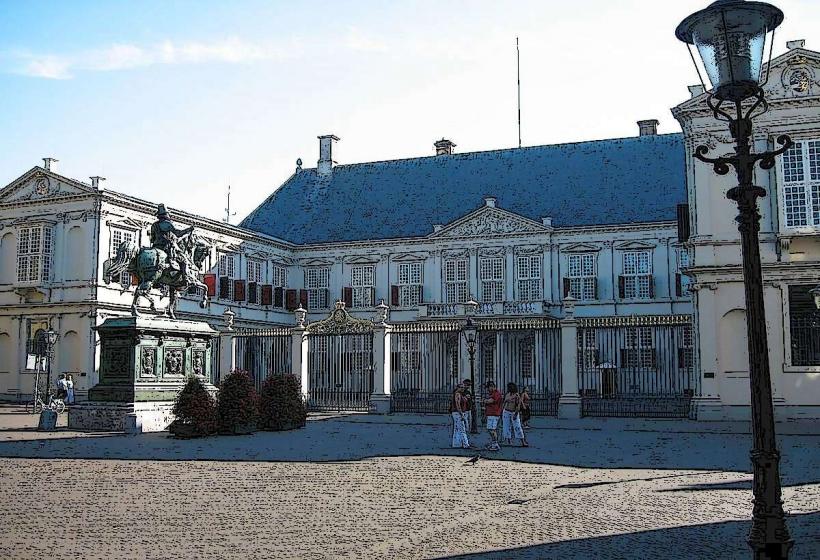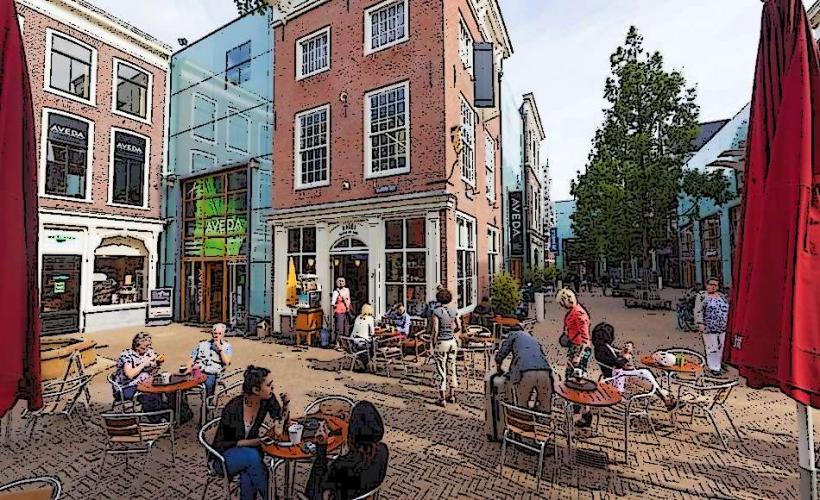Information
Landmark: Royal Conservatory of The HagueCity: The Hague
Country: Netherlands
Continent: Europe
The Royal Conservatory of The Hague (Koninklijk Conservatorium Den Haag) is one of the oldest and most prestigious music conservatories in the Netherlands. It has a rich history and plays a central role in music education, offering a wide range of programs in classical music, jazz, and other contemporary musical forms. The conservatory is known for its high-quality education, renowned faculty, and strong international reputation, attracting talented students from around the world.
Key Features of the Royal Conservatory of The Hague
1. History and Background
Foundation and Legacy: The Royal Conservatory was founded in 1826 as the Koninklijk Conservatorium, and its long history makes it a cornerstone of musical education in the Netherlands. The institution received the designation "Royal" from Queen Wilhelmina in 1925, reflecting its esteemed reputation and contributions to Dutch culture.
Historical Evolution: Over the years, the conservatory has played an essential role in the development of classical and modern music education in the country. It has contributed significantly to the careers of many celebrated musicians and composers, and its alumni include internationally recognized musicians, conductors, and composers.
2. Programs and Specializations
Classical Music: The conservatory offers comprehensive classical music programs at both undergraduate and graduate levels. It includes training in various instruments, voice, composition, orchestral conducting, and music theory. The classical department is one of the most respected in Europe, providing a high standard of education for aspiring musicians.
Jazz and Contemporary Music: In addition to classical training, the Royal Conservatory is known for its innovative programs in jazz and contemporary music. The conservatory's jazz department is highly regarded and attracts students from all over the world who wish to study under some of the best jazz musicians and educators.
Early Music: The conservatory also has a strong focus on early music, including programs for historical performance practice. Students are trained to perform music from the Renaissance, Baroque, and Classical periods, using period instruments and techniques. This specialization is unique and adds to the conservatory’s international reputation for diverse musical education.
Interdisciplinary Programs: The Royal Conservatory offers interdisciplinary programs, including degrees in music management and music technology, equipping students for a broad range of careers in the music industry. The programs are designed to allow students to blend creative and business aspects of the music world.
3. International Orientation and Collaboration
Global Reach: The Royal Conservatory attracts students from all over the world, and its diverse community enhances the cultural exchange and development of musicians. Many faculty members are internationally renowned artists, performers, and composers, creating a vibrant and dynamic learning environment.
Collaborations with International Institutions: The conservatory has established partnerships and collaborations with several prestigious music institutions globally. These collaborations facilitate exchange programs, joint projects, and masterclasses, enhancing the conservatory's international prestige. Students are often given the opportunity to perform abroad and engage in global music festivals.
4. Facilities and Campus
The Conservatory Building: The main campus of the Royal Conservatory is located in The Hague, a city renowned for its cultural and historical significance. The conservatory building itself is modern and well-equipped, featuring practice rooms, performance spaces, and rehearsal halls. The building is designed to provide an inspiring atmosphere for music students, with acoustic spaces that support both individual practice and group performances.
Concert Halls and Venues: The conservatory is also home to several performance venues, including the Royal Conservatory's concert hall, where students can perform for audiences, faculty, and fellow students. These venues are used for recitals, student concerts, masterclasses, and public performances, helping students hone their stage presence and presentation skills.
Technology and Innovation: The Royal Conservatory embraces technology and innovation in music. The institution has modern recording studios and digital music technology facilities, which are integrated into many of its programs. Students learn to incorporate cutting-edge technologies into their music-making, whether it’s through sound engineering, composition, or music production.
5. Concerts and Performances
Student Performances: Students at the Royal Conservatory regularly perform in a wide variety of concerts, from intimate chamber music recitals to large orchestral performances. These concerts are held in the conservatory’s own venues as well as at other prestigious locations in The Hague, including the Lucent Danstheater and the Konzertgebouw.
Guest Performances and Masterclasses: The conservatory hosts a variety of guest musicians, composers, and conductors who give performances, masterclasses, and workshops. These visiting artists provide students with invaluable insights and inspiration from some of the best in the world.
Public Engagement: The conservatory is dedicated to fostering a strong connection with the public. Many of the student concerts are open to the public, offering an opportunity for The Hague’s residents and visitors to experience the high level of talent emerging from the institution. Public performances also contribute to the city's vibrant cultural life.
6. Notable Alumni and Faculty
Alumni: The Royal Conservatory has produced many prominent musicians, including conductors, performers, and composers who have gone on to international careers. Notable alumni include Jaap van Zweden (conductor), Trijntje Oosterhuis (singer), and Rene Jacobs (early music specialist). The conservatory’s alumni are often involved in prestigious music festivals and international performance circuits.
Faculty: The conservatory’s faculty includes renowned musicians, composers, and scholars who are active in the professional music world. Many faculty members are performing artists who maintain careers as concert musicians while teaching at the conservatory, ensuring that students receive instruction based on up-to-date, real-world experience.
7. Role in Dutch Music Culture
Cultural Contribution: The Royal Conservatory plays an integral role in the cultural life of The Hague and the Netherlands. By training the next generation of musicians, composers, and conductors, the conservatory helps to preserve and develop the rich musical heritage of the country while also contributing to the global music scene.
Collaborations with Dutch Institutions: The Royal Conservatory often collaborates with other Dutch music institutions, such as the Royal Concertgebouw Orchestra and the Netherlands Radio Philharmonic, providing students with opportunities to perform with top-tier ensembles.
8. Conclusion
The Royal Conservatory of The Hague is an institution of immense cultural and educational importance, offering students a world-class education in the heart of one of the Netherlands’ most dynamic cities. With its rich history, diverse programs, and global orientation, it remains a leading force in shaping the future of classical, jazz, and contemporary music.

